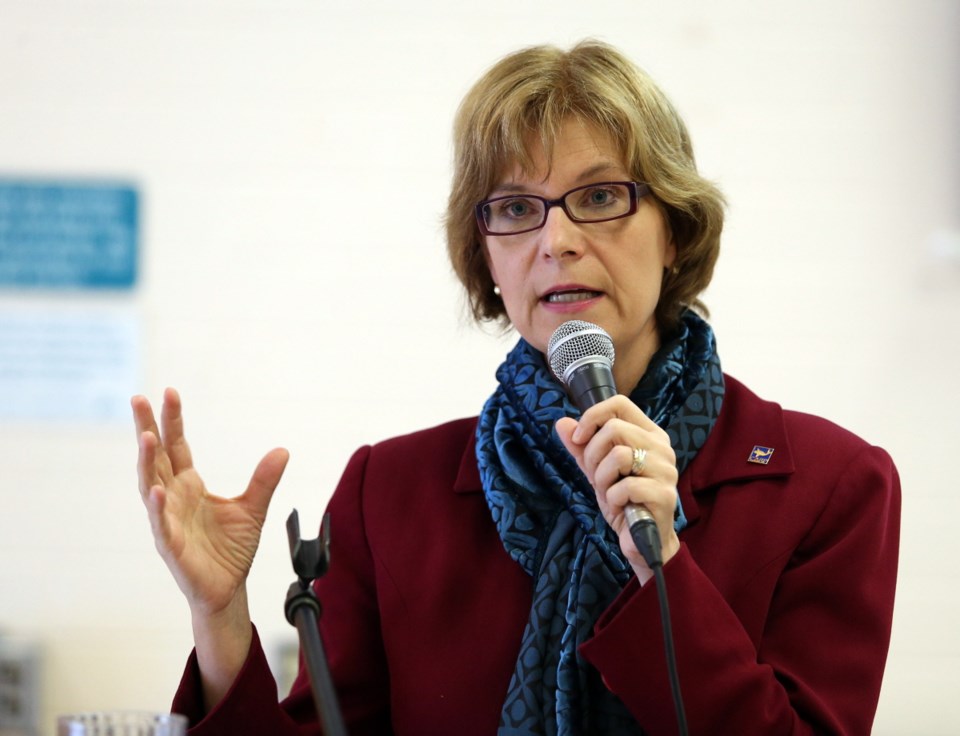B.C.’s most vulnerable senior citizens are not getting the physical therapies they need to maximize their health, independence and functioning, says the province’s independent seniors advocate.
Advocate Isobel Mackenzie said she is “very troubled” that fewer than 12 per cent of B.C. seniors in residential care receive weekly physiotherapy — well below the 25 per cent seen in Alberta and 57 per cent in Ontario.
Most seniors are not even getting recreational therapy such as chair exercises or bingo, she said. Her report, Placement, Drugs and Therapy: We Can Do Better, found just 22 per cent of the 25,000 seniors in B.C.’s public residential care homes received recreational therapy in the previous week. In Alberta, that number was 42 per cent.
“The importance of physiotherapy cannot be minimized,” said the report, based on analysis of health data from B.C. seniors. Only nine per cent of B.C. seniors in residential care received occupational therapy, compared with 22 per cent in Alberta.
“Physiotherapists work with seniors to improve their strength, motor function and balance,” the report said. “Simple things like being able to transfer in and out bed safely and frequently can easily become impossible with the deconditioning that happens with frail seniors if they are bed-bound from a bout of flu or a fracture.”
Setting walkers at the right heights or proper seating in a wheelchair “can make the difference between maximum function or chronic pain.”
Physiotherapists also teach seniors exercises that will restore strength and function, the use of proper body mechanics and the warning signs of pushing themselves too far, the report said.
Frail seniors are the “most needy” members of the community when it comes to physiotherapy and the most likely to fall and fracture their hips, causing a cascade of poor health outcomes, said Rebecca Tunnacliffe, chief executive officer of the Physiotherapy Association of B.C.
Tunnacliffe would like B.C. to follow the lead of Ontario, which in 2013 deemed physiotherapy part of primary health care. Ontario provides $750 in physiotherapy per year to seniors in long-term care.
“All residents who have an assessed need for physiotherapy in their care plan will receive appropriate one-on-one physiotherapy to help them restore their mobility,” said the Ontario Ministry of Health in a statement.
The B.C. Ministry of Health made major cuts to medical services plan coverage of physiotherapy, massage therapy and other health treatments in 2002.
B.C. physicians often complain that physiotherapy is not funded for patients in the community, Tunnacliffe said. “A return of government-funded physiotherapy for seniors would enhance the later years of our most vulnerable patients, who are best served by maintaining their mobility and independence.”
The ministry is aware that that physical therapy is “critically important to frail seniors in helping to address issues like mobility,” said a spokeswoman, “so we will sit down with the seniors advocate and have a look at that data and look at ways we can improve that situation.”
Physiotherapy is part of a minimum 12 minutes a day of nursing or “allied services” — including therapy — that each senior in residential care receives from Island Health, said spokeswoman Suzanne Germain.
Using $40 as an hourly average payment, Island Health funds 26 facilities almost $3,000 a year per resident, with services determined by the assessed needs of the individual residents.
“That means one facility may have higher physiotherapy hours and another higher social work hours per resident.”



